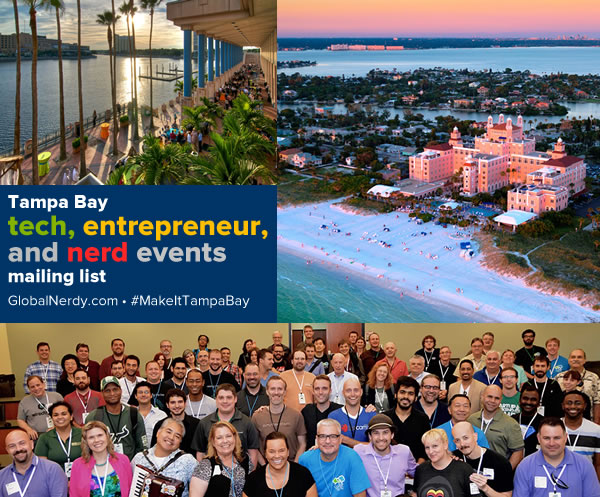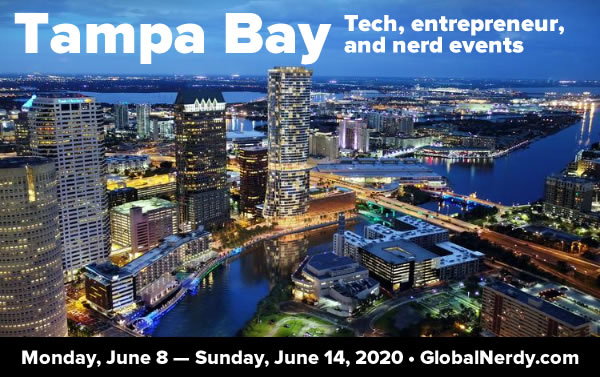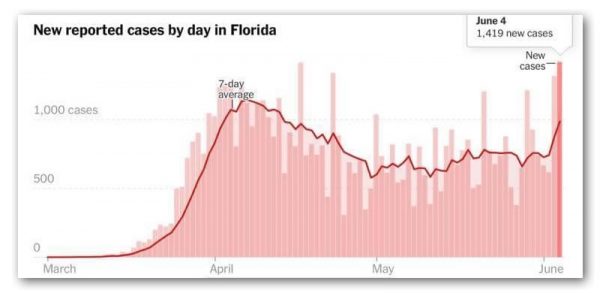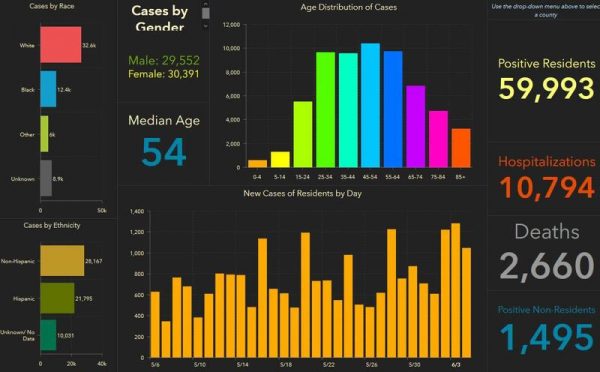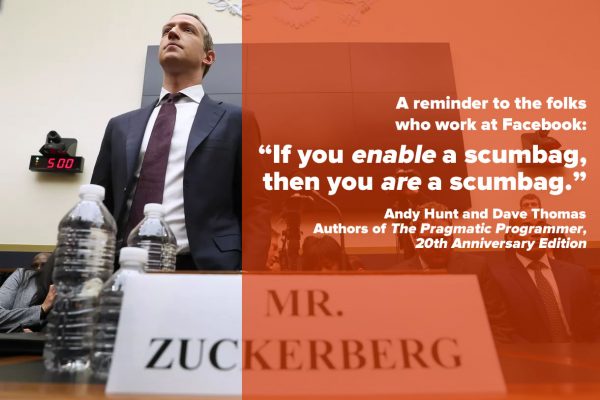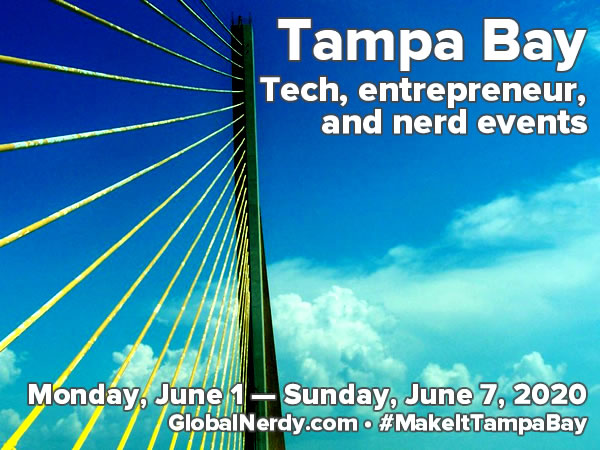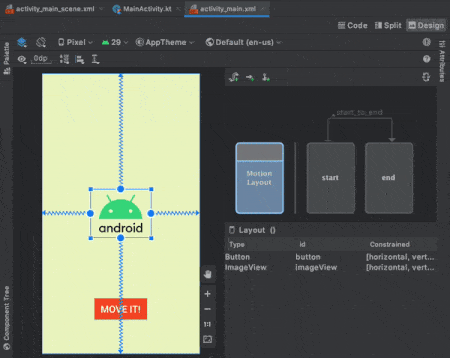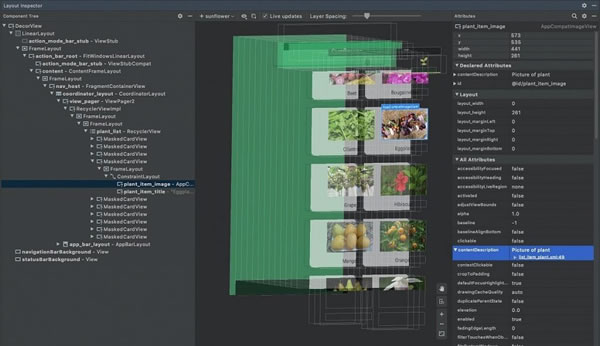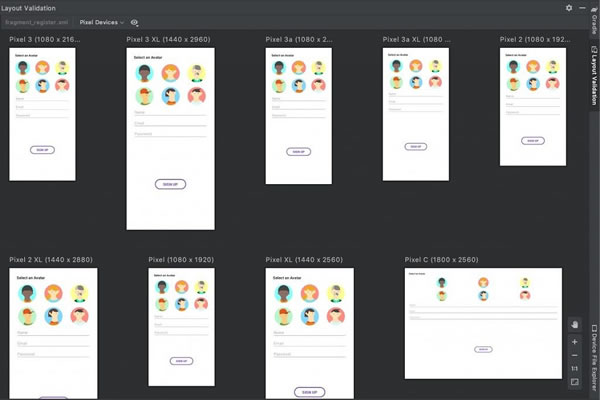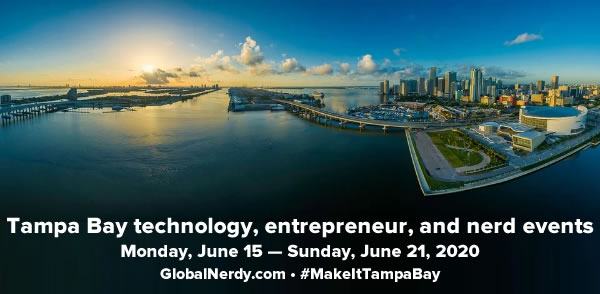
Greetings, Tampa Bay techies, entrepreneurs, and nerds! Welcome to the June 15, 2020 edition of the list! Here’s this week’s list of online-only events for techies, entrepreneurs, and nerds based in an around the Tampa Bay area. Keep an eye on this post; I update it when I hear about new events, it’s always changing. Stay safe, stay connected, and #MakeItTampaBay!
Suncoast Developer Group’s Summer 2020 Hackathon: Friday to Sunday
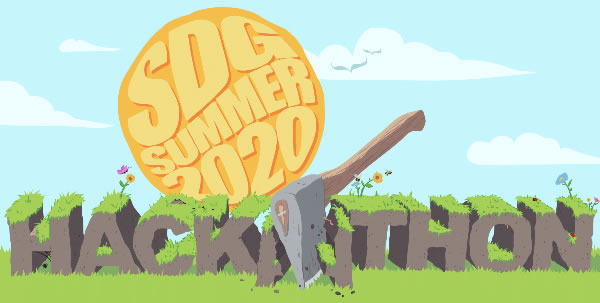
Don’t forget that Suncoast Developers Guild is holding an online Summer Solstice Hackathon this coming weekend! It starts on the afternoon of Friday, June 19th and runs through Sunday the 21st. As they put it, it’s an opportunity to “spend the longest day of the year solving the hardest challenges of 2020 with fellow developers, designers, and champions of economic development in our region.”
There will be three key themes for this hackathon:

Pandemic preparedness and recovery: Every day in this region, software developers are solving problems for non-profits, businesses, families, and communities. As COVID-19 has shown us, this recovery depends on solving problems in creative ways. How can we best be prepared for the next pandemic?

Inclusion, diversity, and intersectionality in the tech workforce: Yes, Houston, we have a problem. When a workforce does not represent the communities it serves, it causes harm and hampers vibrant solutions. SDG’s is working to change this; come and help us.

Building a smarter, more connected Tampa Bay: Developers understand both sustainability and problem-solving. Harness our power by solving a Smart City challenge that will elevate us all. Can we build IoT and Smart City solutions that help our region’s residents without hurting their privacy?

There will be three cash prizes for each theme: $1000 for the main prize, $750 for the runner-up, and $250 for the solo participant. That’s nine prizes in total!
Once again, this event will happen online. You can hack in the comfort of your own home — all hanging out will be done on Discord. Registration and participation is free-as-in-beer.
This is a great way to put your skills to good use and test them, get connected with the Tampa Bay community, and make Tampa Bay a better place in which to live, work, and play. Find out more at the Summer Solstice Hackathon site at hack.suncoast.io!
Monday, June 15
- Tampa Bay Tech Career Advice Forum — Monday Coffee & Networking @ 9:00 AM to 10:00 AM
- Tampa Bay Investors & Traders — Stocktwits Meetups — Winning Wall Streets Money with Stocks, Futures, Options and Forex @ 12:00 PM to 1:30 PM
- Learn Cybersecurity Tampa — {Virtual} Ask-Me-Anything: Cybersecurity Alumni Panel @ 6:00 PM to 7:00 PM
- Tampa Bay DevOps Meetup — TBDevOps monthly: Implementing Automated Testing in the Government Space @ 6:30 PM to 8:30 PM
- Cool ‘n Confident Toastmasters @ 6:30 PM to 8:00 PM
- South Tampa Toastmasters — Toastmasters Open House on Zoom June, 22nd! Making Monday nights fun again! @ 7:00 PM to 8:15 PM
Tuesday, June 16
- Tampa Startup Founder 101 — Building & Expanding Your Brand: During Covid-19 & Beyond (Online Event) @ 12:00 PM to 1:00 PM
- Keystone Mastermind Alliance – KMA Network — ZOOM at NOON – Virtual Meeting @ 12:00 PM to 1:15 PM
- Clearwater Renaissance Speakers Toastmasters @ 12:00 PM to 1:00 PM
- Tampa Bay IIBA — The State of the Business Analysis Profession in the Digital Age @ 12:30 PM to 1:30 PM
- BOSS CEOs Tampa — Is Your Website A Lead Generating Machine? @ 2:00 PM to 3:00 PM
- Tampa SQL User Groups — Pinellas – Monthly Meeting @ 6:00 PM to 9:00 PM
- Tampa Hackerspace — Online Weekly Open Make Night @ 6:00 PM to 10:00 PM
- WordPress St. Petersburg — Gutenberg or Bust! Revisiting the Block Editor in WordPress @ 6:30 PM to 8:30 PM
- Naples Toastmasters Club #2835 @ 7:00 PM to 8:30 PM
- Thinkful Webinar | Data Science: Tools Of The Trade @ 9:00 PM to 11:00 PM
Wednesday, June 17
- Tampa Bay Devops – CI/CD Pipelines for DevSecOps with Hybrid Cloud @ 4:30 PM to 6:00 PM
- Professional Business Networking with RGAnetwork.net — Virtual Speed Networking Mixer @ 5:00 PM to 7:00 PM
- Tampa Apache Kafka® Meetup by Confluent — Introduction to Kafka Streams @ 5:30 PM to 7:00 PM
- Tampa Bay UX Group — Pioneering UX Research: Lessons from a Remote Startup w/ Racine Brown @ 6:00 PM to 7:30 PM
- Continuous Improvement Network (CI Net) — The future is now – Is your business ready? Business transformation revealed @ 6:00 PM to 8:00 PM
- Carrollwood Toastmasters @ 7:00 PM to 8:30 PM
- Thinkful Webinar | Learn Web Development With Thinkful @ 8:00 PM to 10:00 PM
Thursday, June 18
- PROSPERA: Iniciando mi negocio de la forma correcta @ 6:00 PM to 7:30 PM
- Tampa Bay AWS User Group / Tampa Bay Azure User Group — The importance of cloud security and proper security management @ 6:00 PM to 8:00 PM
- Tampa HashiCorp User Group — HashiCorp Vault PKI as-a-Service @ DevOps Speed w/ Live Demo / Cross promotion @ 6:00 PM to 7:30 PM
- Tampa Hackerspace — Online 3D Printer Deltamaker Orientation (members only) @ 7:00 PM to 8:30 PM
- Tampa Hackerspace — ONLINE Five Weeks of Arduino Goodness (week 4) @ 7:00 PM to 9:00 PM
- Thinkful Speaker Series | Alumni Success Secrets From A Coding Bootcamp @ 9:00 PM to 11:00 PM
Friday, June 19
- Virtual Bootstrappers Breakfast® @ 8:30 AM to 10:00 AM
- Suncoast Developers Guild Hackathon @ Friday 4:00 PM to Sunday 7:00 PM
Saturday, June 20
- R-Ladies Tampa — Tibbles, and Intro to Data Import! (Online) @ 10:00 AM to 12:00 PM
- Hack The Box Meetup: Tampa (Remote) @ 11:30 AM to 4:00 PM
- WordSmitten Writing Workshop – Online Session @ 1:00 PM to 3:00 PM
- Tampa Bay Women’s Book Club Meetup Group — Online June Book club @ 1:00 PM to 3:00 PM
- Kitchen Table Book Club: Year of International Voices — “Binti” by Nnedi Okorafor @ 6:00 PM to 8:00 PM
- Fros and Prose Book Club — June selection: Hood Feminism by Mikki Kendall @ 6:00 PM to 8:00 PM
Sunday, June 21
- Shut Up & Write!® St. Pete via Zoom @ 9:00 AM to 10:00 AM
- Books vs. Movie Club — Who Framed Roger Rabbit/Online test run @ 1:00 PM to 3:00 PM
Do you have an upcoming event that you’d like to see on this list?
If you know of an upcoming event that you think should appear on this list, please let me know!
Join the mailing list!
If you’d like to get this list in your email inbox every week, enter your email address below. You’ll only be emailed once a week, and the email will contain this list, plus links to any interesting news, upcoming events, and tech articles.
Join the Tampa Bay Tech Events list and always be informed of what’s coming up in Tampa Bay!
